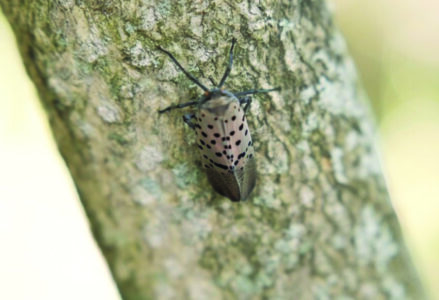Monarchs and milkweed: Superior Watershed Partnership offering free seeds

This is a monarch butterfly, which depends on common milkweed. People can help the butterfly population by planting this wildflower. (Photo courtesy of the Superior Watershed Partnership)
By CHRISTIE MASTRIC
Journal Staff Writer
MARQUETTE — When people think of fall migration, V-shaped flocks of Canada geese might come to mind.
Another type of migration occurs, though, and people can play a part in making sure they continue — by planting seeds.
With the beginning of autumn in the Upper Peninsula, people look forward to a spectacle: the mass seasonal migration of monarch butterflies over the Great Lakes region on their long journey to the mountains of Mexico.
Unfortunately, it was announced in July that the International Union for the Conservation of Nature added the monarch butterfly to its Endangered Red List, joining thousands of other species edging closer to extinction. Habitat destruction and climate change, it indicated, were contributing factors.
Michigan’s monarchs are part of a subspecies famous for undertaking the longest insect migration known to science, said the Superior Watershed Partnership, which noted that feat also provides crucial pollination for plants across the entire continent.
Unfortunately deforestation, habitat loss and increased herbicide and pesticide use have reduced the population over 90% by some estimates, SWP said. The good news is that in the eastern United States, and especially the Upper Peninsula, there is hope for the embattled monarch butterfly and other pollinators.
Over the last decade the Superior Watershed Partnership, the Great Lakes Climate Corps, numerous project partners and hundreds of volunteers have worked to improve pollinator habitat in all 15 counties in the U.P., SWP said. Volunteers have included K-12 students, college students, local residents and visiting families. To date hundreds of acres have been cleared of invasive plant species, over 100,000 native plants — mostly milkweed — have been transplanted. Also, SWP has given away over 1 million milkweed seeds to be planted in backyards, schoolyards and at camps across the U.P.
Common milkweed is more than its fragrant flowers and the plump pods with cotton-like seeds that float away in the fall.
SWP pointed out that common milkweed is the only plant monarchs will eat and it’s the only plant on which monarchs will lay their eggs.
With those limitations, people can make things easier for monarchs.
To this end, SWP is giving away even more milkweed seeds and scheduling more monarch volunteer events for this year and 2023. For a limited time, SWP will provide free packets of milkweed seeds through participating U.P. breweries, bike shops and libraries.
Additionally, SWP will offer more K-12 classroom presentations and more community education events on the importance of backyard habitat restoration, growing native plants and the important role of pollinator species.
“The great thing about milkweed seeds is that they can be planted in the fall, spring or early summer,” said Kathleen Henry, SWP environmental education specialist, in a news release. “The planting process is simple. It’s a great activity for individuals, families and kids. There is no time like the present to help the endangered monarch butterfly,” said Kathleen Henry; SWP Environmental Education Specialist.
Planting seeds in the fall allows them to cold stratify naturally, helping the germination process in the spring, Henry said.
Additional volunteer events will be scheduled this fall and next spring, including working alongside the GLCC on prioritized monarch habitat restoration projects at sites across the U.P.
Getting involved with habitat restoration is easy, SWP said, and it’s the most important work that can be performed in the face of species extinction.
For more information on the SWP monarch butterfly habitat restoration initiative, contact Henry at 906-228-6095 ext. 11 or visit www.superiorwatersheds.org.
Christie Mastric can be reached at 906-228-2500, ext. 250. Her email address is cbleck@miningjournal.net.




